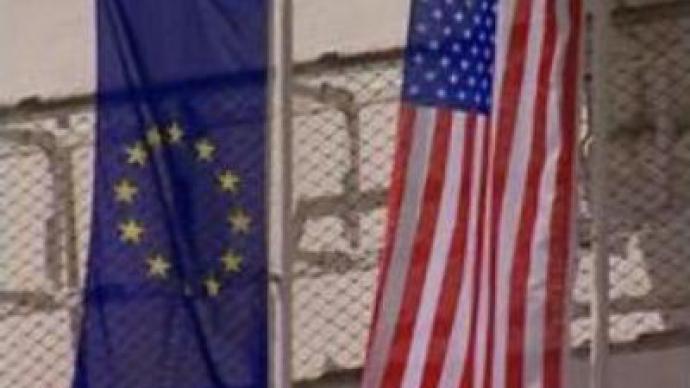EU & U.S. discus missile defence system in Central Europe

The annual summit between the European Union and the United States has taken place in Washington D.C. It is the deployment of the U.S. missile shield system in Central Europe that overshadowed all other discussions held on Monday.
Russia considers the deployment of the missile defence system in Central Europe as a threat to its national security. Thus, Russian President Putin denounced last week the proposed deployment and also called for a moratorium on conventional forces in Europe.
In this regard, German Chancellor Angela Merkel urged Russia to participate in the common threat analysis to clarify the need for missile defence system in Central Europe, saying this would help to alleviate some tensions between the United States and Russia.
For his part, President Bush said at the summit that he hoped further dialogue would help Russia seeing the U.S. not as an antagonistic force but as a friendly one.
“She [Angela Merkel] expressed her concerns that the U.S. position was not very clear about the missile defence systems and that there were some people concerned in Germany as well as Europe about our intentions. And she also suggested that it might make sense for me to share my intentions more clearly with President Putin, and I took her advice very seriously. Our intention of course is to have a defence system that prevents world regimes from holding Western Europe and all America to hostage. Evidently the Russians view it differently. Our intention is to say to Russia that the system is something you are to think about participating in. It is in your interests to have a system that could prevent a future Iranian regime for example from launching a weapon. It is in Russia’s security interests,” commented President Bush.
Among other problems discussed at the summit was the Iranian nuclear issue.
European Commission President Jose Manuel Barroso said both the U.S. and the EU are committed to send a strong message to the Iranian regime.
“Regarding Iran – we also share the same views basically, about how to deal with Iran, and it is not only the U.S. and Europe, I would say. There are several resolutions of the UN Security Council, and the Iranians should understand that this is a message they are receiving from the global community – from the U.S., from Europe, but also from others – the UN Security Council adopted several resolutions. Nuclear proliferation is indeed a threat not only to regional stability, but to the global peace and global stability,” stated Jose Manuel Barroso.
President Bush said this joint message should be taken by Iran as a strong signal to give up its nuclear ambitions. He also added he sees Iran as a threat to world peace if the Iranians are able to produce nuclear weapon.
The Iran nuclear issue has been quite a point of contention between Russia and the West. The United States, Great Britain, France and Germany want the UN Security Council to pass tough sanctions on Iran for the failure to comply with the Security Council resolution providing for suspension of uranium enrichment by Iran. For its part, Russia insists on more dialogue with Iran.
Also, in a White House press conference, George Bush, Angela Merkel, and Jose Manuel Barroso said real progress had been made on global warming.












